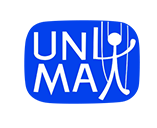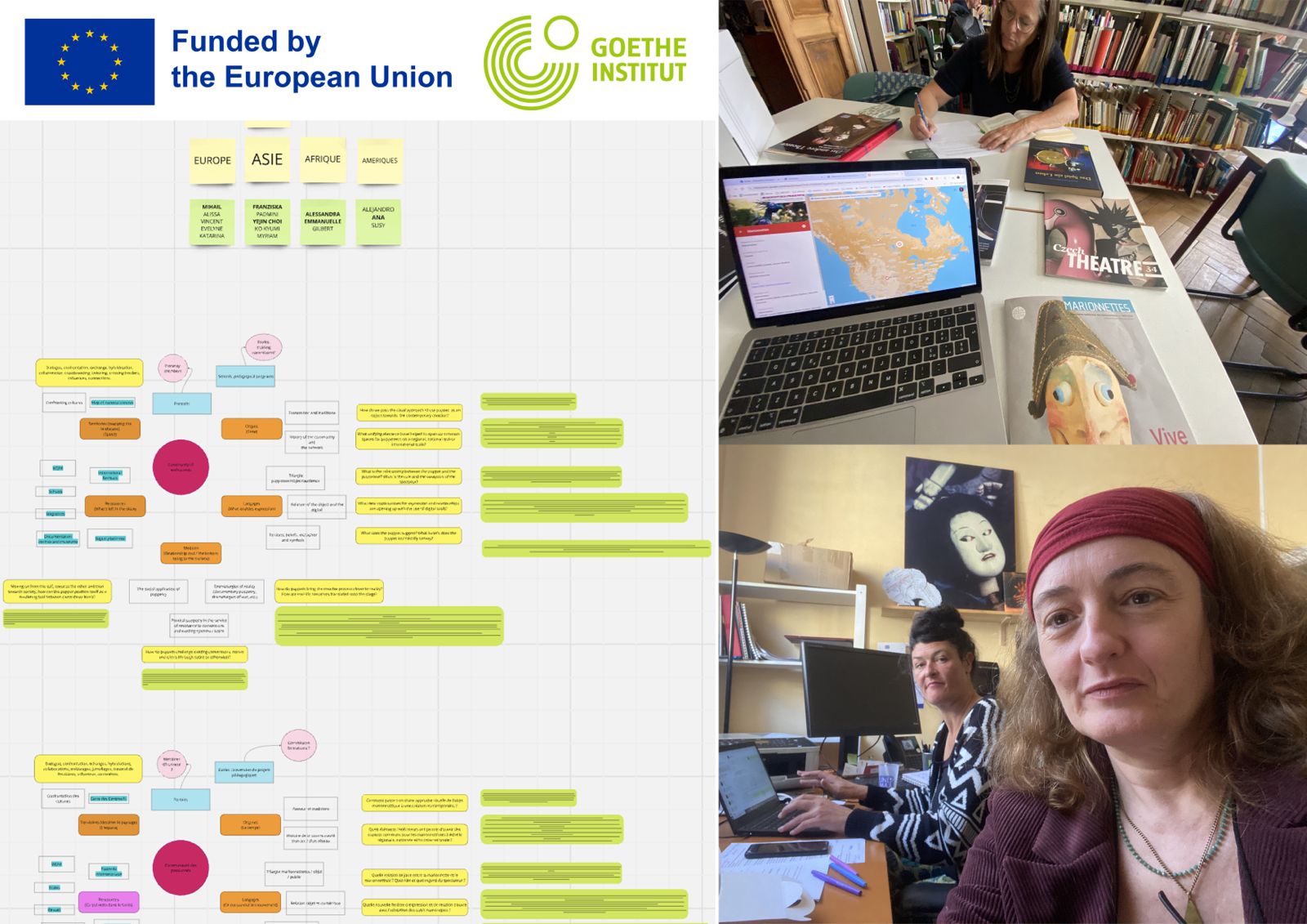Alessandra Amicarelli and Franziska Voëmel were in Charleville-Mézières from 17 to 23 September. At the invitation of UNIMA, they carried out a fruitful research residency on the international magazine project being developed by UNIMA’s Puppetry Publication Online sub-commission. This week was both studious and full of enriching encounters. This visit was made possible thanks to funding from the Goethe Institute as part of the Culture Moves Europe programme.
In particular, they had the opportunity to:
- Spend time at the documentation center of the International Puppet Institute to consult resources. A meeting was also organized with one of the staff members of the documentation center.
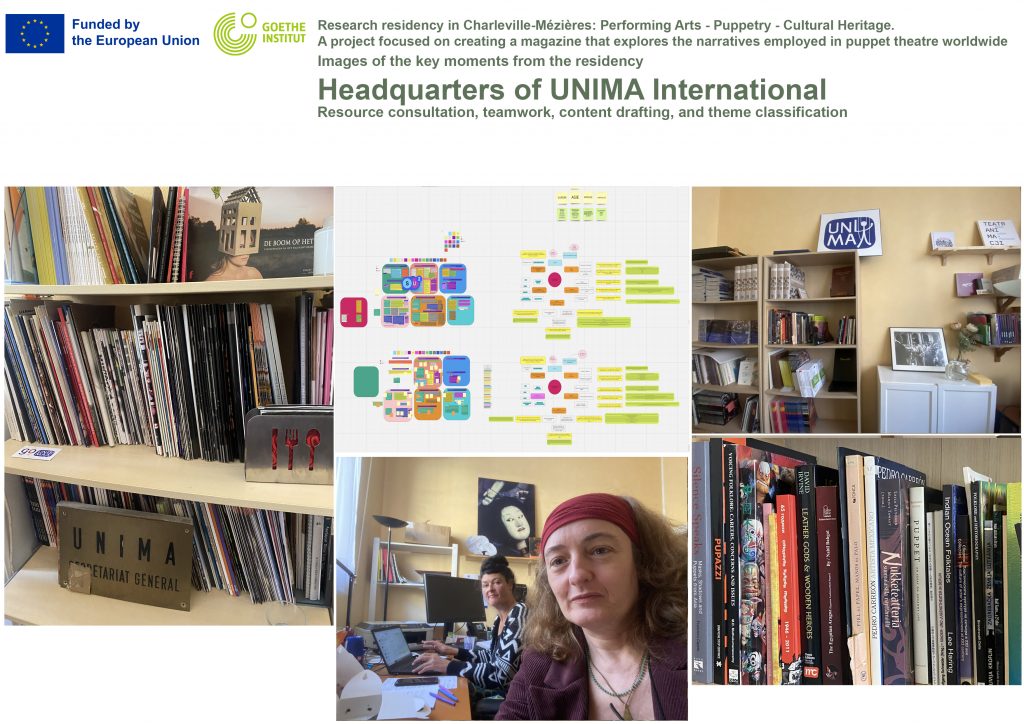
- Meet with the staff responsible for the Museum of the Ardennes and discuss during a private visit to the museum about the issue of preservation
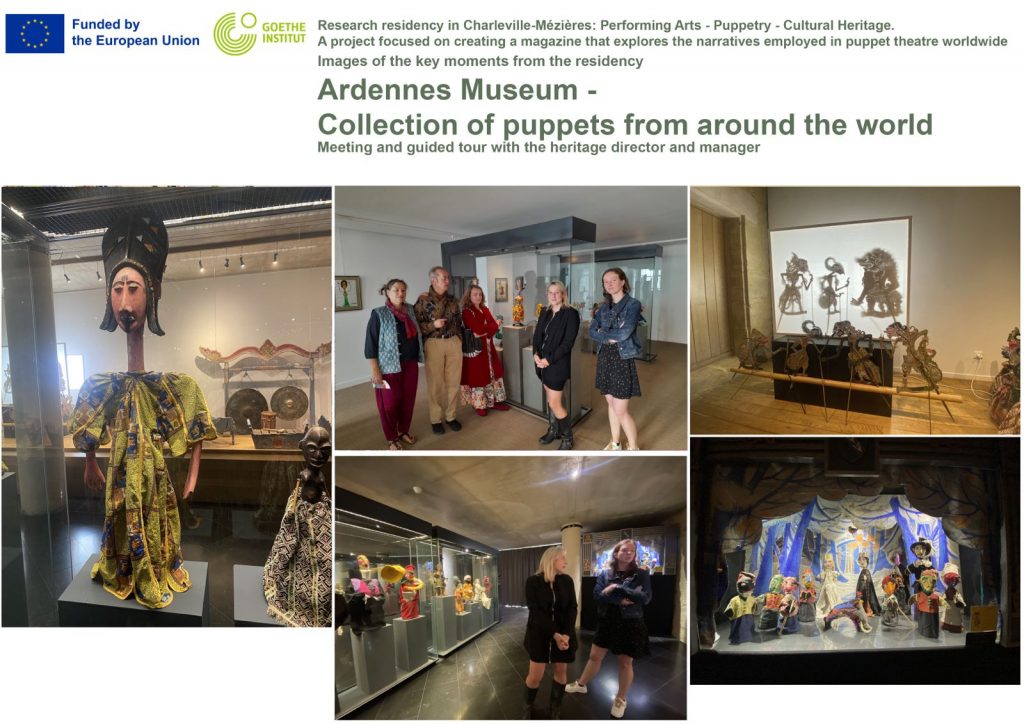
- Organize professional meetings with individuals engaged in various capacities in the world of puppet theatre, thanks to the concurrent holding of the Temps d’M Festival.
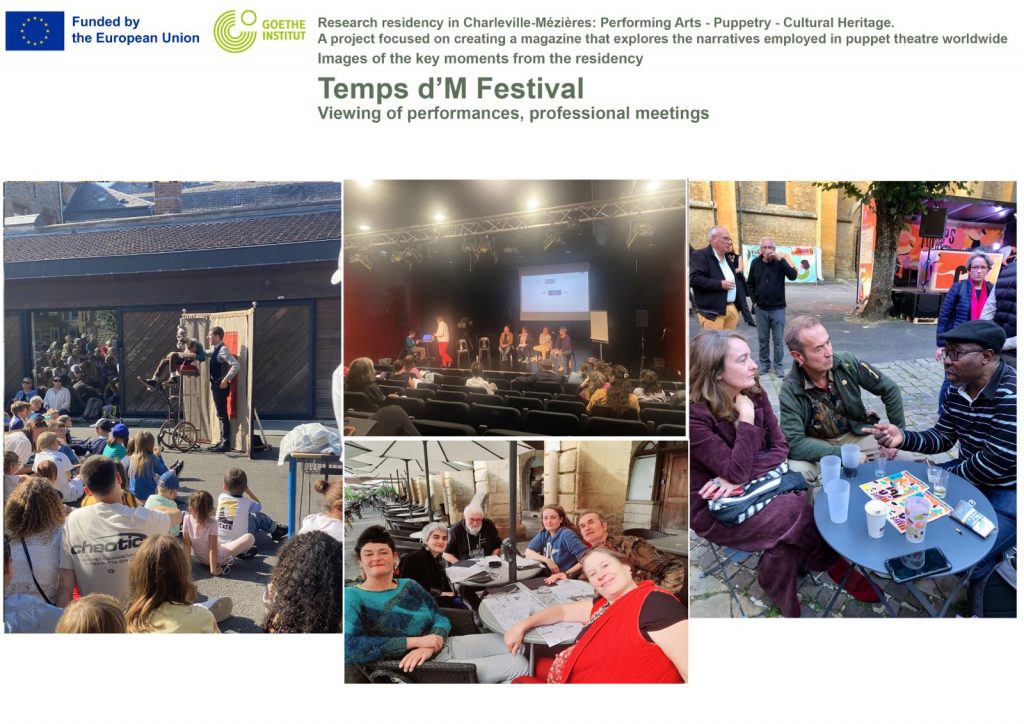
- Present the respective National Centers during a meeting at the Museum of the Ardennes, as part of the presentation of the theme for World Puppet Day 2025
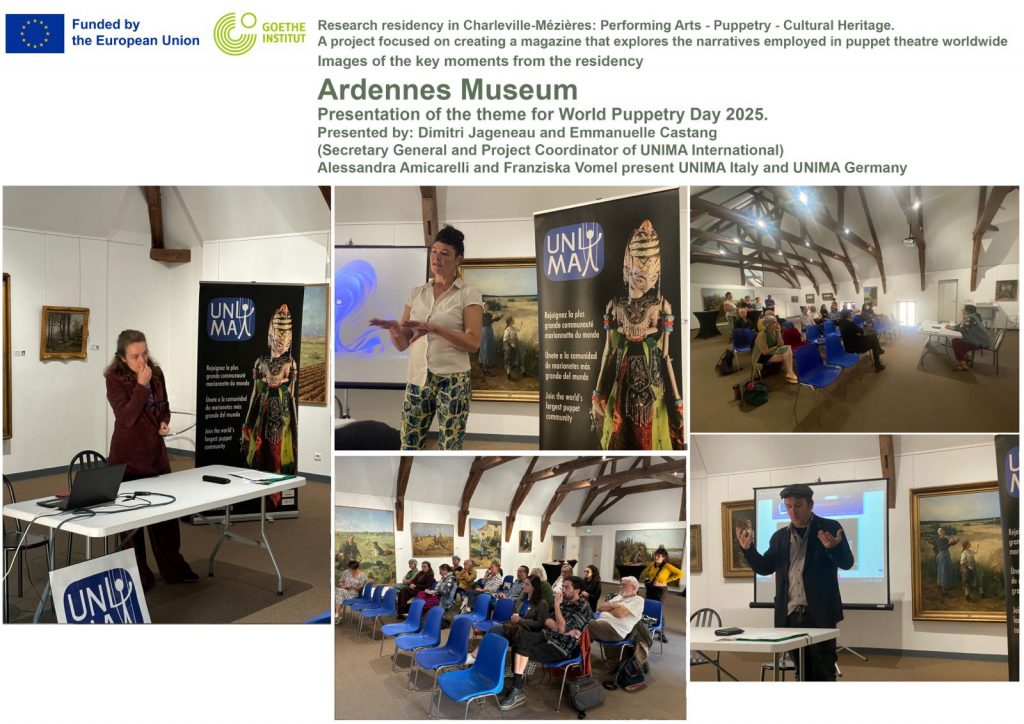
Lay the groundwork for a large project in the future
The online and print magazine is launched and financed by UNIMA, the International Union of Puppetry, and its first edition is expected to be completed by mid-May. The central idea is to make information and discussions about the vast genre of puppet theatre accessible to a wide global audience, primarily targeting interested puppeteers from around the world. This is done in collaboration with existing puppet theatre magazines in numerous countries and with the “UNIMA National Centers,” as well as with further contacts in countries where no National Center exists.
A series of regular Zoom meetings every two months starting from September 2023 has created a solid basic structure for the publication concerning the choice of fundamental topics, the call to puppet theatre magazines worldwide asking them to submit articles in the three UNIMA languages (English, French, Spanish), the selection of different responsibilities (speakers) for the various countries, and the final decisions on the selection of suitable articles.
The group of the “International Editorial Committee” varied significantly during the period, with new members being added and not everyone always available, but it managed to stabilize over the year.
The stay in Charleville-Mézières, which coincided with the biennial puppet theatre festival Temps d’M, opened the possibility of conducting interviews and meetings with various actors from the global puppet theatre scene, and also allowed attendance at several performances. It is interesting to note that mainly graduates of the Ecole Nationale Supérieure de la Marionnette (ESNAM) presented their creations, providing insights into new artistic trends.
During the common “office working hours,” it was possible to organize the received articles by themes, develop the corresponding meta-plans, and create a visualization and representation of the entire project using the collaborative MIRO tool.
A final Zoom meeting lasting several hours with the other members of the Editorial Committee concluded the working week, during which the new ideas and creations were discussed and explained.

This work was carried out with the financial support of the European Union. The views expressed here can in no way be considered as reflecting the official opinion of the European Union.
